#Maud Gonne
Text
#OTD in 1902 – Premiere of W.B. Yeats’ Cathleen ni Houlihan starring Maud Gonne. The play is about the failed rebellion of 1798, with a woman representing the ideal of an independent Irish republic.
Cathleen ni Houlihan is a one-act play written by William Butler Yeats and Lady Gregory in 1902. It was first performed on 2 April of that year and first published in October on Samhain. The play centers on the 1798 Rebellion. The play is startlingly nationalistic, in its last pages encouraging young men to sacrifice their lives for the heroine Cathleen ni Houlihan, who represents an independent…
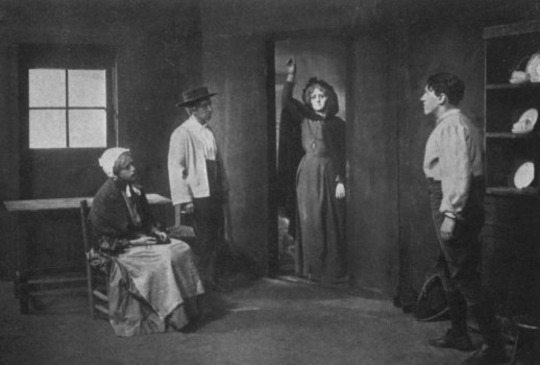
View On WordPress
#1798 United Irish Rebellion#Cathleen ni Houlihan#Dublin#England#Ireland#Lady Gregory#Maud Gonne#William Buter Yeats
10 notes
·
View notes
Text
Many that are red-cheeked now will be pale-cheeked; many that have been free to walk the hills and the bogs and the rushes will be sent to walk hard streets in far countries; many a good plan will be broken; many that have gathered money will not stay to spend it; many a child will be born, and there will be no father at its christening to give it a name. They that had red cheeks will have pale cheeks for my sake; and for all that, they will think they are well paid.
Lady Gregory and W.B. Yeats, Cathleen ni Houlihan (1902)
2 notes
·
View notes
Text
WB Yeats was a loser incel and I'm tired of pretending he's not. Literally in "Easter 1916" look how he talks about Maud Gonne's husband John MacBride.
also the way people talk about Gonne and Yeats is weird. She rejected him and he continued to harass her trying to propose then started try to propose to her DAUGHTER.
WB Yeat's would be crying on a reddit forum about how he's "such a nice guy and she just doesn't get it" if he was born today.
#wb yeats#going to stir up trouble in the yeats fandom#william butler yeats#maybe this is me just being a bit of a history nerds#maud gonne#john macbride#poetry
3 notes
·
View notes
Text
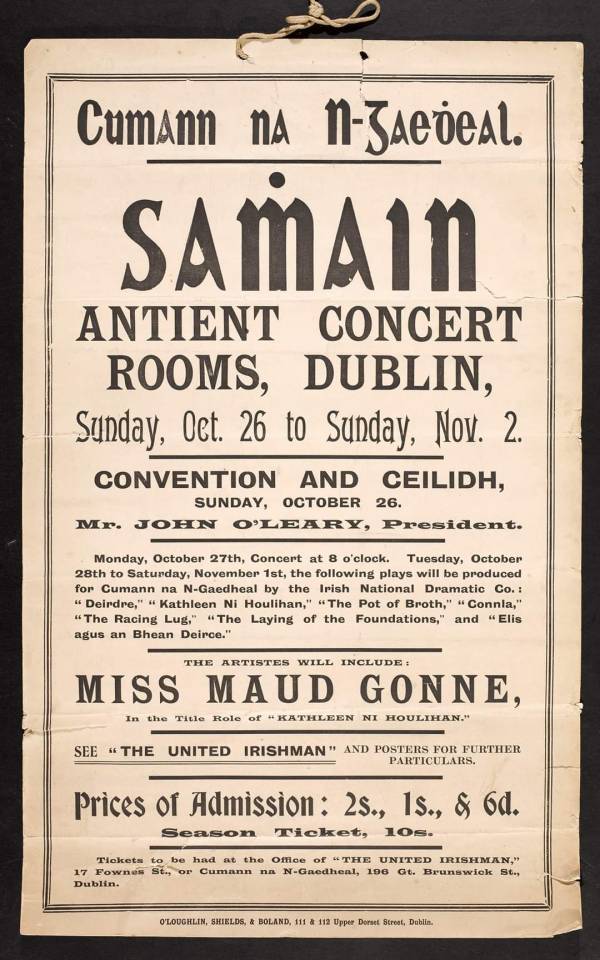
1 note
·
View note
Text
Maud Gonne: la maga hija de Irlanda
Maud Gonne, la destacada maga, poeta y activista por los derechos de las mujeres y la independencia de Irlanda
Maud Gonne es conocida por haber sido el interés romántico de W.B. Yeats, así como Leila Waddell – brillante compositora y maga destacada por propio mérito- lo es por haber sido pareja de Aleister Crowley. Leila y Maud compartieron, además, un doble compromiso político: la indeclinable adhesión al feminismo y; la lucha en todos los frentes por la independencia de Irlanda.
Maud Gonne participó…
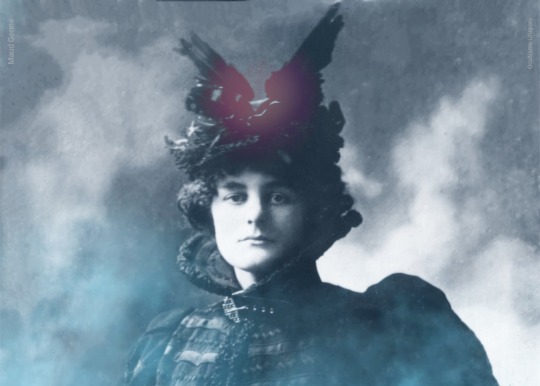
View On WordPress
0 notes
Text
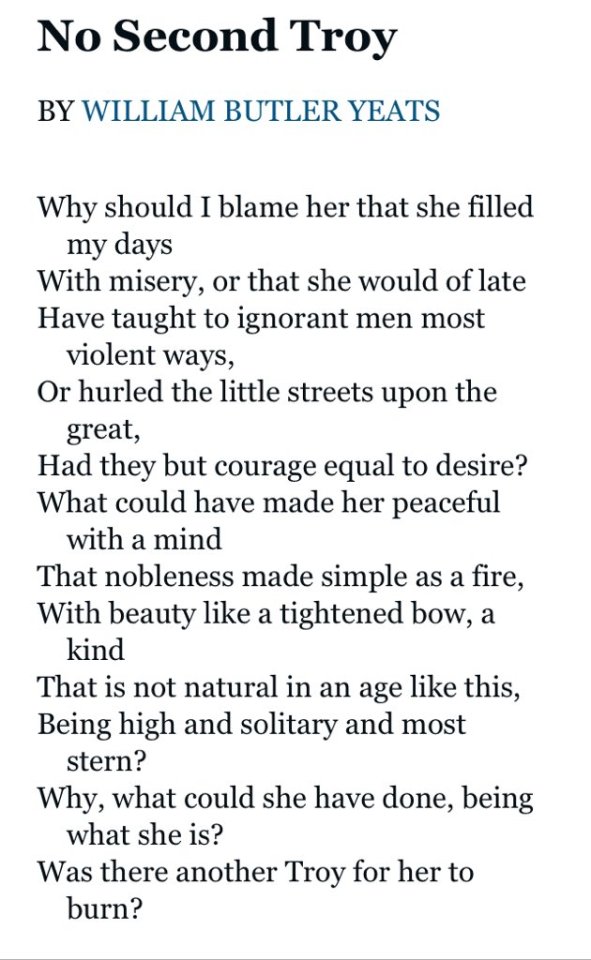
17 notes
·
View notes
Note
🎧 AM I TOO LATE
NO UR NOT HI
and when im in bed, im dead, no one to check my pulse. and so instead, my head begs not to be so full. and when I fall asleep, which part of me writes the dream and which part falls asleep? whos running the machine?
maud gone by car seat headrest
#MAUD NOW UR GONE NOW UR GOOOOONEEEEEEEEEE#the way my ears perked up wjen we did yeats in uni i was like omg maud gonne just like the car seat headrest song#ask game#ask
2 notes
·
View notes
Text
I have to think more about feminity too. Not just masculinity. Fetch me the papers again.
#tbf I also have been thinking about it a lot#esp with how different soph is from her ma#Soph is such an unfortunate Maud Gonne figure in a way but also that is something she can't achieve either#beablabbers
0 notes
Text
*listens to Yeat's Grave by The Cranberries*
*files "No Second Troy is a Pattison Poem" under Takes Only To Share With Book Club*
#Kcfh#allison x patty#Look I get hung up on literalism enough to not seperate its actual references to real serious events#But also yeah in this case Maud Gonne is Allison in this case#And now I'm connecting the lines between Maud Gonne and Morganna Mode Gone from .Hack
1 note
·
View note
Text
#OTD in 1916 – Easter Rising | Irish patriot, John MacBride, is executed by firing squad in Kilmainham Gaol.
Born in Westport, Co Mayo, MacBride travelled to America in 1896 to further the aims of the IRB, thereafter travelling to South Africa where he raised the Irish Transvaal Brigade, which became known as MacBride’s Brigade, to fight against the English during the Second Boer War where, as happened far too often in history, Irish fought against Irish. A larger number of Irish (whose sympathies led…
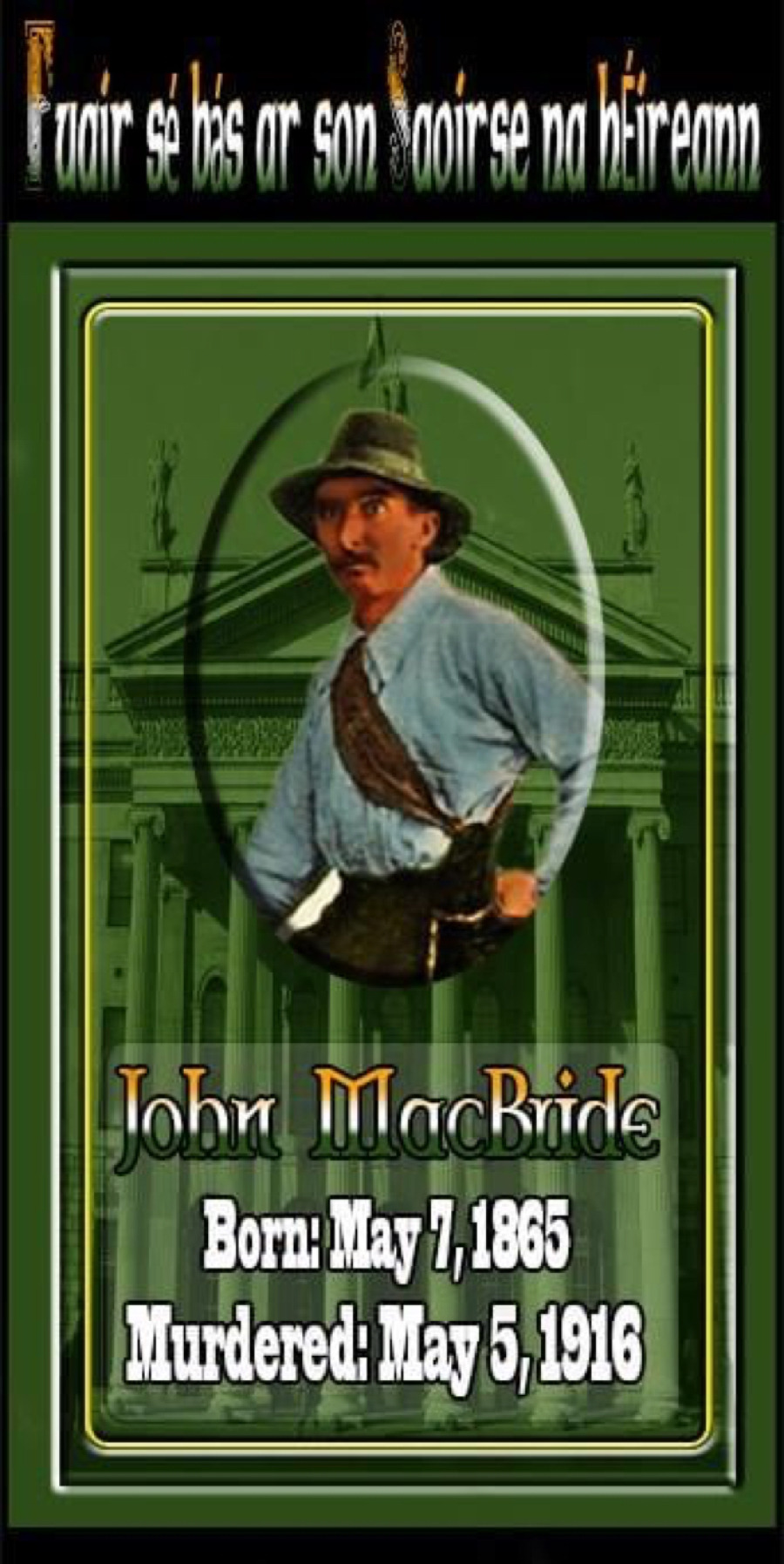
View On WordPress
#1916 Easter Rising#Boer War#Co. Mayo#Dublin#England#History of Ireland#Ireland#Irish Transvaal Brigade#Jacob&039;s Biscuit Factory#John MacBride#Kilmainham Gaol#MacBride&039;s Brigade#Major John MacBride#Maud Gonne#Thomas MacDonagh#Westport#William Butler Yeats
10 notes
·
View notes
Text
So it is June 13th (1865) and the birthday of W.B. Yeats and good to remember all his words and reflect on his astrology and his synastry with his unrequited love -Maud Gonne. So much to learn from Yeats, the great Gemini who wrote from the Deep Heart’s Core: It starts with the first two stanzas of 'Sailing to Byzantium' a reflection on old age.
0 notes
Text
folks PLEASE if you haven't already *go get a library card* like im gonna sound like those 2012 posts that are like 'ALRIGHTY KIDS TAKE A SEAT BECAUSE AUNTIE [username] HAS SOME WISDOM FOR YOU' but seriously go get a library card.... they give you books for free ♥️ and audiobooks! for free ♥️♥️ and you can return them ♥️ and get NEW ones!! ♥️♥️ my library lets me take out SEVENTYFIVE BOOKS AT ONCE ♥️♥️ for free ♥️ and you can just read them online, if you just download their app ♥️♥️
#maude shouts into the void#yes i am high and in my feelings about how much i love libraries. it is my life goal to become a librarian. when i go back to school.... t#hats what its gonne be.....
1 note
·
View note
Text

Established in 1833, John Kavanagh's got its nickname as the bar is built into the side of Glasnevin Cemetery and gravediggers would often stop in for a pint of "the black stuff" after a hard day's work.
As Ireland's National Cemetery, Glasnevin is the final resting place for many of the island's most famous sons and daughters, including Daniel O'Connell, Maude Gonne and Brendan Behan.
Thanks to @dublinsnugs for the lovely snap
27 notes
·
View notes
Photo
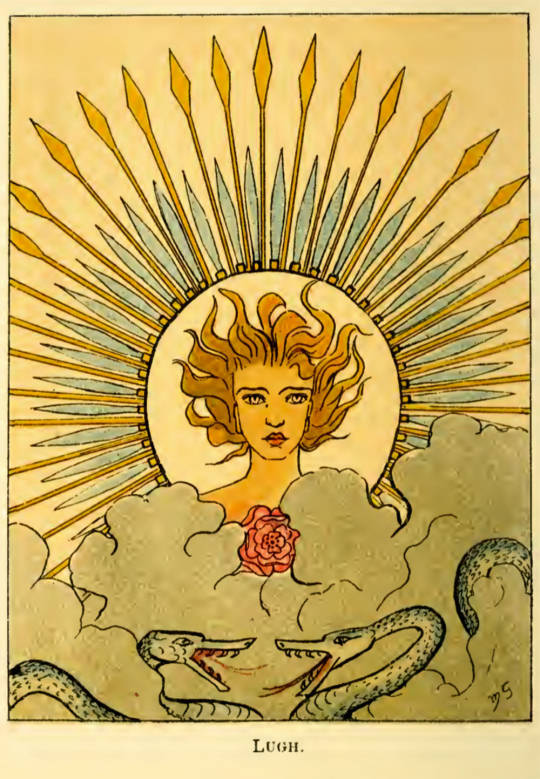
Born today... Maud Gonne, 21st December, 1866.image; illustration for The coming of Lugh- A Celtic Wonder tale retold by Elle Young 1909.
http://www.carrowkeel.com/sites/moytura/lugh.html?fbclid=IwAR2Z0xersg2a1ga4a2UkRz4slmnTyOd4MCh_VtrIcYBgSfkES8y6SzbjEl4
141 notes
·
View notes
Text
TIL that the first female Member of Parliament in the UK was Constance Markievicz who was a countess born into an upper class family of Protestant Anglo-Irish origin but she never actually sat at Westminster because Markievicz was elected as a member of Sinn Fein and a lifelong supporter of the Irish nationalist movement and supported the anti-Treaty side during the civil war. So like, if the UK doesn’t commemorate her as much as you’d think the first woman elected to parliament would be, I think that’s why
Also
In 1908, Markievicz became actively involved in nationalist politics in Ireland. She joined Sinn Féin and Inghinidhe na hÉireann ('Daughters of Ireland'), a revolutionary women's movement founded by the actress and activist Maud Gonne, muse of WB Yeats. Markievicz came directly to her first meeting from a function at Dublin Castle, the seat of British rule in Ireland, wearing a satin ball gown and a diamond tiara. Naturally, the members looked upon her with some hostility. This refreshing change from being ‘"kowtowed" to’ as a countess only made her more eager to join, she told her friend Helena Molony.
She seems cool
84 notes
·
View notes
Note
Favorite Yeats poem? I can't get enough of him.
"Easter, 1916." He does everything he could do there; it's the greatest political poem in English of the 20th century. First, simply from a "craft" perspective, there is the propulsive but unobtrusive accentual (but not syllabic) meter, the pulsing three-beat line. Then the deceptively simple abab rhyme scheme—except that the even lines only ever off-rhyme. Sound mimics sense in this mingling of the beautiful and the terrible: our march song is never quite in perfect rhythm. We can never quite get the steps right as we march toward our sublime deaths. This isn't "The Charge of the Light Brigade."
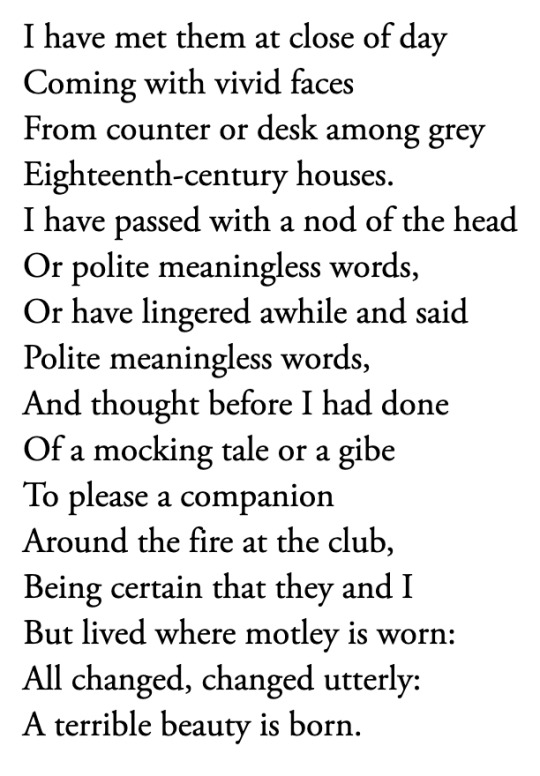
For one thing, it's not public rhetoric, or not just public rhetoric. There is the quiet, personal opening of the first stanza, the "I" in its humble self-deprecatory historical setting, when we know what modern life and all its calculating mediocrity meant for Yeats. Then, enacting in language the transformation it proposes of public life, the first appearance of the refrain lifts the poem into epic.

In the second stanza, we find an epic catalogue of the flawed vessels of historical force, made more poignant by a knowledge of what it probably took for Yeats to praise MacBride ("a drunken, vainglorious lout") who had, in his mind, robbed him of Maud Gonne. Small-nation politics lends itself to such gossip. "Great hatred, little room," as he had it elsewhere. But that farce is past. Comedy has turned to tragedy in the national epic of the uprising.

But this, again, is poetry: not propaganda. You don't write the best political poem of the 20th century by celebrating emancipatory violence without subtlety, without nuance, without irony. Here we have the irony of a conservative revolution—again, recall the etymology of Tory—revolution not as the forward movement of history, as the benighted progressive thinks, but rather as the obdurate force that blocks history from engulfing the whole of the lifeworld. He sounds oddly like Benjamin here, as well as like Eliot, showing how vain it is to explain the most serious art and thought by shallow labels like left and right. "Enchanted" as it is, though, the stone is also opposed to nature, to the "living stream" figured most vividly in the prospective mating of hen and cock. As in "Sailing to Byzantium," another favorite, Yeats is worried about the conflict between the art and the life, between raw life and the artifice of eternity. The refrain does not appear, the poem's own flow broken.

Our bard, who as a member of the Protestant upper class favored negotation with England rather than violent revolt, expresses misgivings. Homer didn't have misgivings, for all that Yeats would later want to model himself on Homer's "unchristened heart." He has misgivings about more than just resistance tactics. He identifies with women, he fears for the nation's children, for the nation's very soul. The trope of the stone becomes disenchanted, no longer the Arthurian romance's source of political power but the Old Testament's hardness of heart, inviting divine chastisement. The cause of the revolutionaries itself comes into question for a moment. Was their violence part of the vanity, part of the "motley," with which the poem began? Have we really ever left the comedy, the 18th-century farce? But the motive spiritualizes the event: "excess of love." We think of Antigone, we think of Lear. Tragic heroism is still heroism. And in conclusion, the epic catalogue proper, before the refrain comes around again for our cyclic poet, itself changed utterly: "terrible beauty" no longer a political slogan but the aesthetic credo that will guide the rest of the poet's work out of the bee-loud glade and the Celtic Twilight and into "the desolation of reality," "gaiety transfiguring all that dread," the gaiety that is the achievement of form in the midst of terror.
10 notes
·
View notes